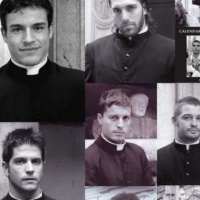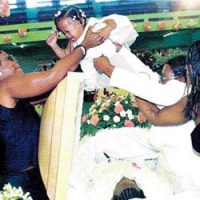
Graham Kendrick, composer of the most loathed of all happy-clappy hymns, “Shine Jesus Shine”, has been named by Quentin Letts in a new book as one of the 50 People Who B*ggered up Britain. I can hear cheers emanating from pews up and down the country.
But Quentin is an old friend of mine, and I want to tell him: be careful. Kendrick is not one of the useless, drippy mediocrities who have ruined Catholic music with their folk Masses. He is – and I’m not making this up – a leading practitioner of what he calls “spiritual warfare”, and he may well conclude that Letts’s attack is demonic.
Letts certainly pitches into Kendrick with devilish glee, describing him as “the nation’s preeminent churner-outer of evangelical bilge, king of the happy-clappy banalities … Pam Ayres without the humour”. And he adds: “The jazzy chorus of ‘Shine Jesus Shine’ is particular agony, accompanied, as it often is, by a couple of emotionally incontinent show-offs in the front pews raising their arms and swinging them from side to side.”
What will Kendrick make of that? I dread to think. For he is not just a hymn-writer, but a leading proponent of a scarily hard-edged theology of spiritual warfare in which the earth is crawling with demons. Or, as he once wrote: “Satan has the real estate of villages, towns and cities overshadowed by ruling spirits which work untiringly to bring about his malevolent will.”
Charismatics who belong to this school of thought believe in marching through Satan’s territory, cleansing it of spirits by, yes, singing Graham Kendrick hymns. Quentin, you have been warned. Don’t let them find out where you live…







